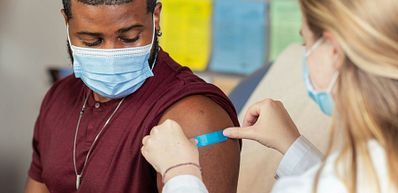
-
![Passport Stamps]() Provided by: mana5280/unsplash
Provided by: mana5280/unsplash

Our travel guides are free to read and explore online. If you want to get your own copy, the full travel guide for this destination is available to you offline* to bring along anywhere or print for your trip.
*this will be downloaded as a PDF.Price
€4,95
Passport / Visa
The guide was updated:The Philippines can be visited visa-free for up to 30 days by citizens of all European Union member states, all ASEAN member states, the UK, the USA, Canada, Australia, New Zealand, Japan, South Korea, South Africa, Malaysia, Israel, the UAE and most countries in Latin America. A valid return or onward ticket and a passport that is valid upon entry and for at least six months beyond the period of stay are required to enter the Philippines. If you are unsure whether or not you need to apply for a visa, contact the embassy or consulate in your country.
Useful Information
- Website: www.dfa-oca.ph/services/visa
Digital Travel Guide Download
Our travel guides are free to read and explore online. If you want to get your own copy, the full travel guide for this destination is available to you offline* to bring along anywhere or print for your trip.
*this will be downloaded as a PDF.Price
€4,95

Davao International Airport, also known as Davao International Airport, is the busiest airport on the island of Mindanao, serving Davao city. Most flights arrive from other airports in the Philippines, but a growing number of international flights arrive from Asian cities like Hong Kong, Macau, Singapore, Seoul and also from Indonesia. The airport has a range of facilities, including ATM machines and telephones.
The best way to make the roughly 20-minute journey into the centre of the city is by taxi. Metered and fixed rate taxis can be found outside the airport terminal. Small buses called 'Jeepneys' are a cheaper option.
Read more

Passport / Visa
The Philippines can be visited visa-free for up to 30 days by citizens of all European Union member states, all ASEAN member states, the UK, the USA, Canada, Australia, New Zealand, Japan, South Korea, South Africa, Malaysia, Israel, the UAE and most countries in Latin America. A valid return or onward ticket and a passport that is valid upon entry and for at least six months beyond the period of stay are required to enter the Philippines. If you are unsure whether or not you need to apply for a visa, contact the embassy or consulate in your country.
Read more

Best Time to Visit
The dry period between November and April is the peak tourist season in the Philippines. Hidden areas and remote islands are fully accessible, and temperatures are very mild, especially from December to February.
During the wet season, from May to October, you can still enjoy sunny days, but bear in mind that typhoons can occur.
The months of May and November are considered low season, which means smaller crowds and lower prices for flights and accommodation. The weather is still pleasant, nonetheless.
Read more

Public Transport
Getting around Davao is relatively straightforward, although you can expect some interruptions due to bad weather like torrential rain. The more adventurous forms of transport are the Jeepney, which are local buses, tricycles or pedicabs. If you choose any of these transport means, make sure you have some loose change to pay your driver.
Read more

Post
There are several postal outlets across the city. Mailboxes are blue; however, they may be difficult to locate. The easiest way to send mail is by directly going to the post office. The Davao Central Post Office is conveniently located in the city centre.
Read more

Pharmacy
Davao has no shortage of pharmacies spread all over the city. The Mercury Drug pharmacies open 24/7.
Read more

Telephone
Country code: +63
Area code: 82
Read more

Electricity
The Philippines uses American-style power sockets with two flat prongs as well as European-style sockets with two round prongs. Expect 220 volts at 60Hz.
Read more

Safety Notice
If you visit Davao City at night, you should remain vigilant and take safety precautions. Stick to well-lit, populated areas, keep valuable items out of sight, and be wary of pickpockets and petty theft. Keep local emergency numbers at hand and use licenced transport. Additionally, respecting local customs and laws will contribute to a safe and enjoyable experience in Davao City.
Read more


